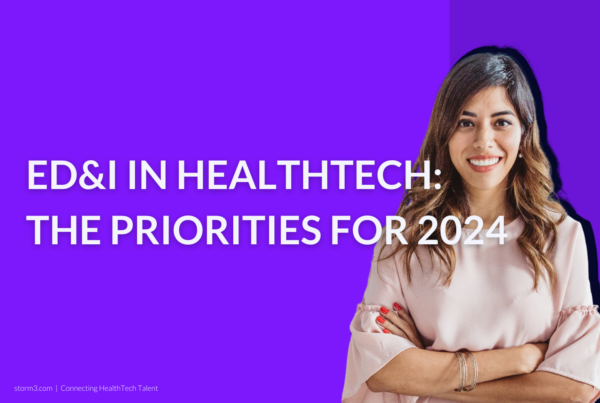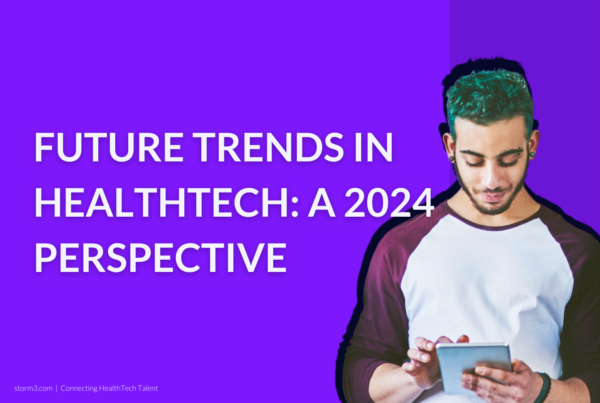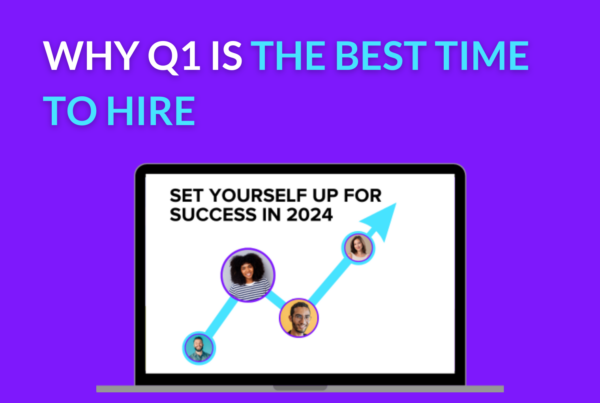HealthTech and medical technology are quickly developing areas. Due to the rapid changes, the World Economic Forum predicts that by 2030, more than a billion people will need reskilling in medical technology. At Storm3 we have a wide network of highly skilled experts across different functions, who can accelerate your HealthTech’s growth and put your company at the forefront of all technological changes to come.
Let’s take a look at the top 5 future medical technologies that have been appearing in the HealthTech scene:
3D Printing
One of the biggest game-changer technology in healthcare is 3D printing. 3D-printed prosthetics are able to perfectly match an individual’s measurements, thus providing more comfort and mobility to patients. This technology can also be used for presurgical planning and training, as 3D printers can create a realistic replica of an actual patient’s anatomy (e.g. Schiner 3D Repro GmbH). Overall, they can reduce the time spent in the operating room and increase the success rate of surgeries. There are other uses of this technology, such as bio-printing and the 3D printing of medications. The former provides the opportunity of creating new skin cells and organs for patients. The latter is predicated to become a regular technique in hospitals in the next 5 to 10 years (e.g. by the UK-based biotech FabRx).
Technology In Mental Health
The importance of prioritizing our mental health most certainly came to the forefront since the COVID-19 pandemic started. Experts estimate that by 2030, depression will be the most widespread disease globally. Thankfully, in the past couple of years, various new technologies emerged that help in addressing a patient’s ongoing mental health needs. For example, there are mobile apps that are able to complete patient intakes and provide an initial diagnosis. AI powered tools and chatbots, like Wysa or Woebot Health, help patients practice cognitive behavioral therapy (CBT) strategies. AI algorithms can analyze data to identify patterns and alert health professionals in time of any concerning signs.
Another emerging technology in the field is the use of video games for mental health treatment. EndeavorRx works on a prescription base and helps improve the attention spam of children with ADHD. DeepWell DTx is dedicated to creating gameplays that have the potential to become a popular, affordable and accessible treatment for a various mental health conditions.

CRISPR Technology
Genome editing is one of the most exciting areas of Genomics. CRISPR is the most advanced gene-editing technology, enabling researchers to ‘cut out’ defected DNA. It has huge potential in treating rare diseases. Its biggest promise is that by modifying genes, some of the biggest diseases to this day, like cancer and HIV, could be overcome in a few years. Nevertheless, this technology also raises several ethical concerns, such as the concern of gene-editing with the aim to produce ‘designer babies’, that are yet to be solved.
Neurotechnology
Neurotechnology is emerged from the combination of AI and neuroscience. It aims to build and design machines that will repair and improve people’s brains and minds in new ways. It’s most commonly used for research purposes on mental illnesses or sleep patterns, as well as to influence the brain or nervous system for therapeutic and rehabilitative purposes.
One of the most promising areas of neurotechnology is the brain-computer interfaces (BCIs), that allow the control of electronic devices only by thinking. For example, HealthTech company Cognixion combines BCI with Augmented Reality to help people with disabilities interact with the real and digital world. Neurotech company Kernel partnered with biotech Cybin to combine the most up to date brain recording technology with psychedelic therapeutics. Neurotechnology has various future implications in other areas as well, such as education, workplace management, national security, and sports.

Tech In Cardiology
Cardiovascular diseases are responsible for 32% of all global death. They show symptoms at a slower rate, hence the name ‘silent epidemic’. Early detection is the key for prevention, in which digital technologies can make a huge difference. There are various companies offering portable devices that can provide complex measurements. MOCACARE’s device measures heart rate, blood oxygen, and pulse wave velocity. Kardia offers a medical-grade ECG recorder, flagging potential atrial fibrillation or other risks. Exploris provides an AI-powered test which detects plaques in heart arteries, while Arterys enables healthcare professionals to view the patient’s heart in 4D, by color coding the blood flow in the heart in real time. The promise of these devices is that in the near future, cardiology could transform into being more prediction and early intervention focused (instead of disease treatment being in the forefront).
Our list above is not in any way exhaustive. The digital health world is evolving quickly. It’s likely that in the near future, the use of these improved and reachable technologies will be the new normal. The aim of all these technological advancements is to make healthcare more patient focused, and to facilitate and improve the work of healthcare professionals. Nonetheless, there is no doubt that there is an urgent need for the implementation of safety regulations and the consideration of ethical issues before these technologies become accessible to the wider public.
We Are Here For You
Whether in digital technology or in other HealthTech sectors, Storm3 is here to help support the rapid growth of this incredible pioneering industry. We are specialist recruiters dedicated to working with the top companies in all HealthTech sectors. Whether you are a start-up or planning to scale up, Storm3 is here to help you find the right senior talent for the right specialism. If you are looking to expand your team, contact us and if you would like to stay up to date on the industry news, click here to follow us.










